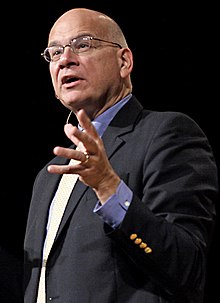What do you put your faith in? I think all of us, to one degree or another, tend to put our faith in idols. Is my idol money (based on the myth that having enough money can save me from not having enough)? Or, perhaps I might idolize physical beauty or fitness (based on the myth that keeping fit can save me from infirmity)? Both of these ideations, and many more, are based on the notion that we can save ourselves in some way, shape, or form. And they are all wrong. I was reading Isaiah Chapter 57 today.
To those who put their faith in things besides God, the prophet exclaims (specifically, in verses 12 and 13):
I will expose your righteousness and your works,
and they will not benefit you.
When you cry out for help,
let your collection of idols save you!
The wind will carry all of them off,
a mere breath will blow them away.
But whoever takes refuge in me
will inherit the land
and possess my holy mountain.
Anything we put our faith in, besides God, is an idol. On the other hand, how could any rational person say that a bit of idolization was a bad thing? For example, who could possibly clam that it wouldn't benefit us to have some savings for a rainy day, or to keep physically fit? To some, faith in God might seem idiotic. Or, perhaps more charitably put, a bit naive. Of course we should do what we can to protect ourselves from financial calamity or from an early death from heart disease, right?
I propose that the problem for modern day, First World inhabitants, is not that we may have financial savings or fitness goals, but rather what we put our faith in. Do we think these things can save us? Do we think that financial security or physical fitness are the primary factors which will determine our success in life? If we do, we need to think harder and better about what it is that is important in life, really and overall.
I suggest that instead of focusing on what we give up when we lack savings or health, or any other thing we are tempted to idolize, instead we need to be more aware of the valuable things we give up when we substitute the temporary and visible for the permanent and intangible. When we seek to depend on ourselves and on our temporally based idols, we give up immense possibilities for inner depth, compassion, and community that comes from reliance on things outside our own control, reliance on Others to do God's will.
Father Richard Rohr, speaking about modern day idols, has written,
"I would say that our real failure is not so much greed (although it is that, too) as self sufficiency, arrogance, and superficiality. Inner depth, compassion, and community died in many of us. We might call the thing that died a capacity for simple presence--presence to ourselves, to others, to the moment, and to inherent joy. That is the death of the soul for sure, and eventually of society."

Gain perspective. Trust God. Rely more on community, on generosity. Develop deeper understandings. Be present, simply present. Pray about this!
Excerpt from the article,
A Crisis of Prosperity: Could Small Again Be Beautiful? by Father Richard Rohr (accessed March 20, 2012). AP Photo of a penitent man bearing a cross made of a cactus, by Gregory Boyle, accessed
HERE
Technorati Tags:
prayer,
Lent












